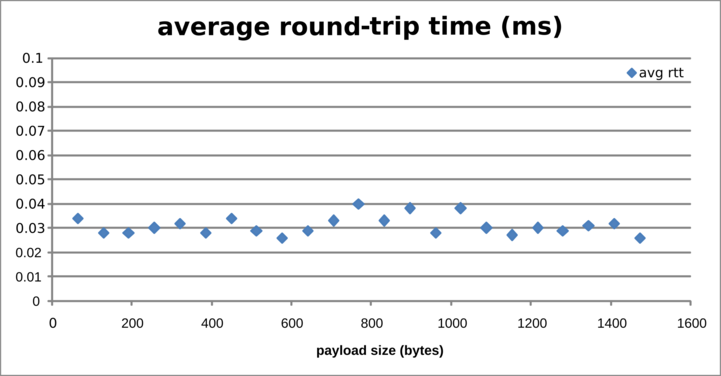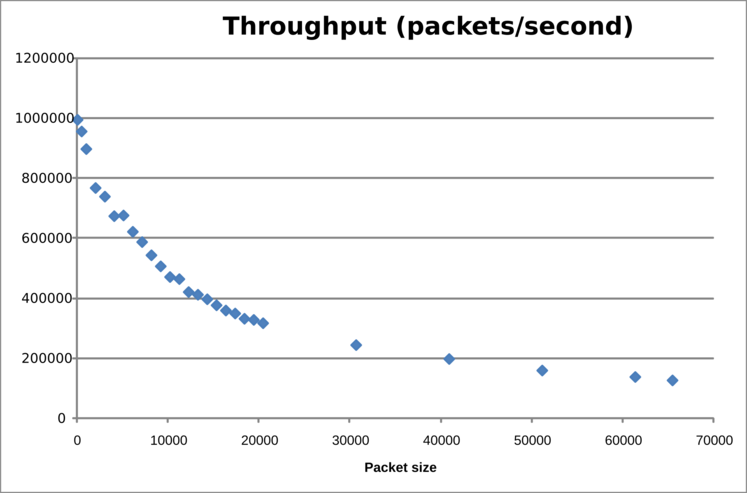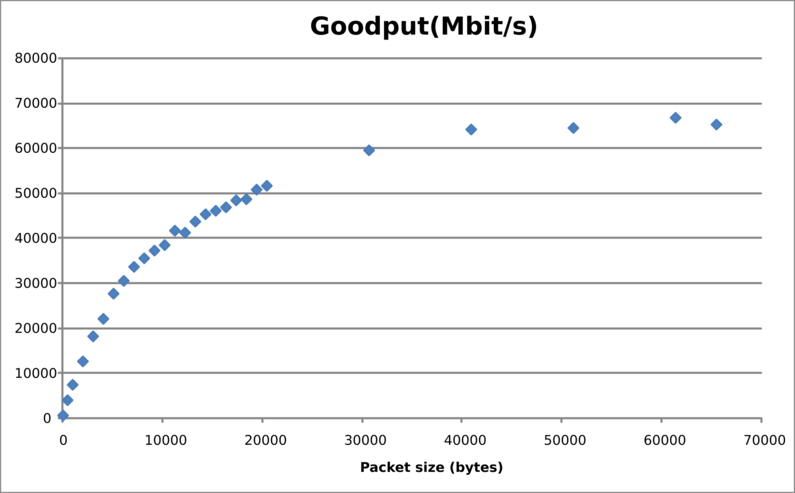Performance tests
Below you will find some measurements on the performance of Ouroboros.
Local IPC performance test
This test uses the oping tool to measure round trip time. This tools generates traffic from a single thread. The server has a single thread that handles ping requests and sends responses.
$ oping -n oping -i 0 -s <sdu size>
The figure below shows the round-trip-time (rtt) in milliseconds (ms) for IPC over a local layer for different packet sizes, measured on an Intel Core i7 4500U (2 cores @ 2.4GHz). For small payloads (up to 1500 bytes), the rtt is quite stable at around 30 µs. This will mostly depend on CPU frequency and to a lesser extent the OS scheduler.

This test uses the ocbr tool to measure goodput between a sender and receiver. The sender generates traffic from a single thread. The receiver handles traffic from a single thread. The performance will heavily depend on your system’s memory layout (cache sizes etc). This test was run on a Dell XPS13 9333 (2013 model).
$ ocbr -n ocbr -f -s <sdu size>

The goodput (Mb/s) is shown below:

Ethernet + Normal test
This connects 2 machines over a Gb LAN using the eth-dix and a normal layer. The oping server is registered in the dix as oping.dix and in the normal as oping.normal. The machines (dual-socket Intel Xeon E5520) are connected over a non-blocking switch.
Latency test:
ICMP ping:
--- 192.168.1.2 ping statistics ---
1000 packets transmitted, 1000 received, 0% packet loss, time 65ms
rtt min/avg/max/mdev = 0.046/0.049/0.083/0.002 ms, ipg/ewma 0.065/0.049 ms
oping over eth-dix:
--- oping.dix ping statistics ---
1000 SDUs transmitted, 1000 received, 0% packet loss, time: 66.142 ms
rtt min/avg/max/mdev = 0.098/0.112/0.290/0.010 ms
oping over eth-normal:
--- oping.normal ping statistics ---
1000 SDUs transmitted, 1000 received, 0% packet loss, time: 71.532 ms
rtt min/avg/max/mdev = 0.143/0.180/0.373/0.020 ms